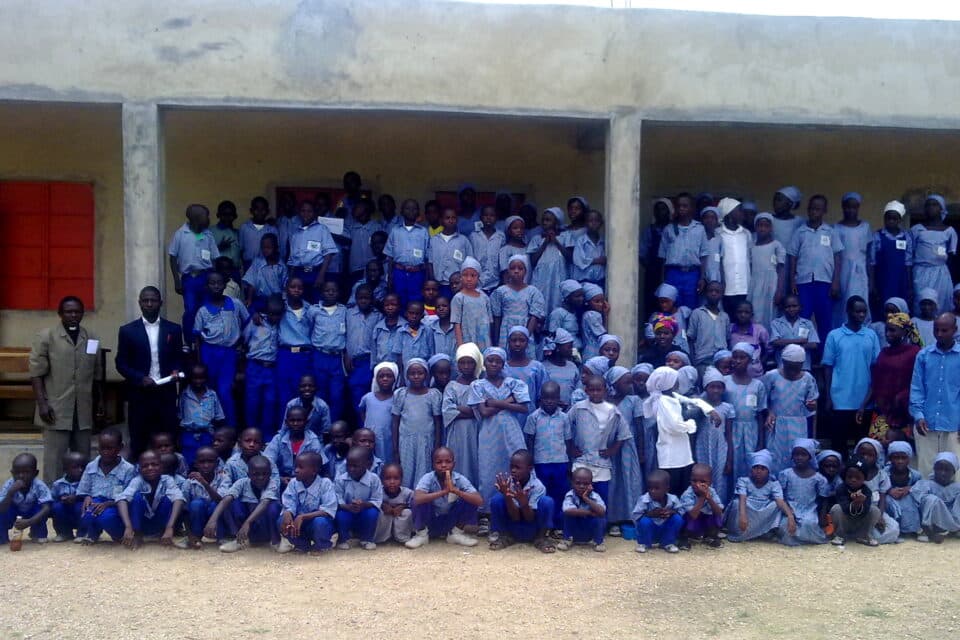Help our local partners realise their vision of hope for their communities

The number of COVID-19 cases in Nigeria continues to rise and has reached nearly 30,000, with the number of deaths at just below 700. Lagos, the country’s largest city, has the highest number of infections with over 10,000, with more than 126 deaths and 1,592 recoveries. On average, 600 new cases are recorded nationwide, every day.
Although these figures are not particularly high compared to other West African countries, the pandemic has shone a light on inequalities and divides that still exist in Africa’s largest economy, particularly with regards to education.
A UNICEF report states that 10.5 million of the country’s children aged 5-14 years are not in school and only 61% of 6 to 11-year-olds regularly attend primary school. Some states in the north east and north west of the country have more than half of girls not enrolled in schools as marginalisation ensures that girls are deprived of basic education. Prior to the COVID-19 outbreak, a struggle was on-going to ensure young children stay in school and have access to proper education. Nigeria contributes approximately 20% of the total global out-of-school population.
The COVID-19 pandemic has caused a revolution in digital and online education globally, but this has only served to intensify educational inequality in Nigeria. Children in rural and underserved communities lack the equipment to adapt to new methods of learning and so are being left behind their classmates. It is a fact that those already handicapped by poverty are those who will be further left behind as digital solutions to reduced school time fails to accommodate and reach the poorest students.
Moreover, a major issue presented by the current situation is that the children who do not currently have access to remote learning may struggle to catch up when in-class learning resumes, exacerbating social inequality. Substantial government aid is needed for further investment in modern educational tools in more rural areas. It has been suggested that reforms in the national curriculum post-pandemic would be an effective way to bridge the gap in inequality.
Primary schools are due to re-open from the 29th of June but secondary and tertiary schools are to remain closed, as they have been since March 26th. This is a relatively late reopening compared to other African countries; South Africa started their phased return of children to schools on 8th June, despite having the highest rate of infection in the continent. As this phased re-opening commences, the Nigerian government must evaluate and seek to redress the educational inequalities that have only worsened over the past months.
At HART we strive to bring education to as many children as possible. That’s why we work with the Christian Institute in Jos, Plateau State and the School and Clinic in Bari, Kano State.
You can read more about our educational projects here: https://www.hart-uk.org/locations/nigeria/
If you wish to donate to HART and help our partners in their campaign to bring education to all, click here: https://www.hart-uk.org/donate/
By Abbie Brooks